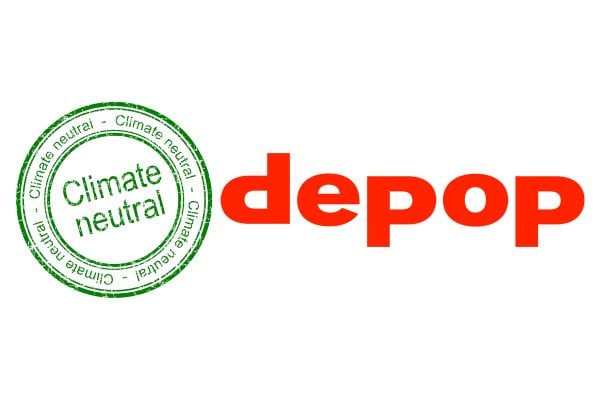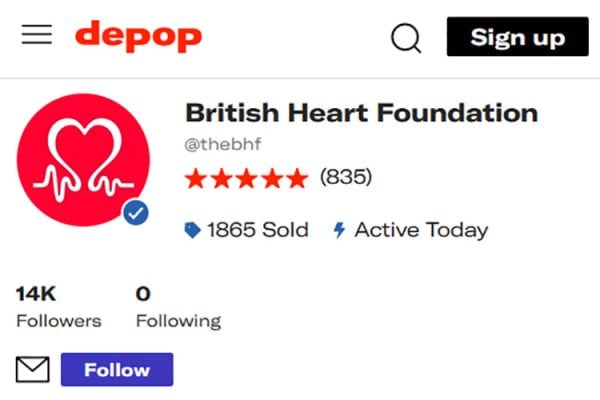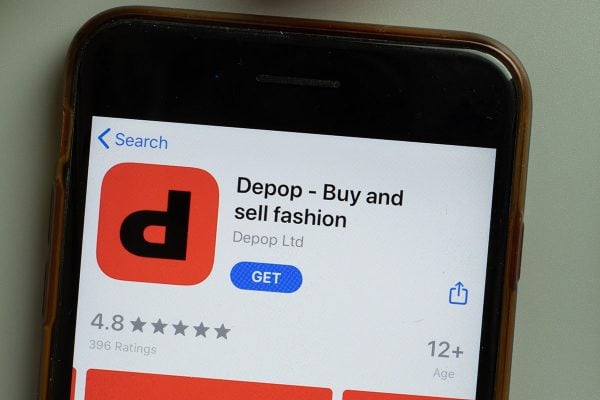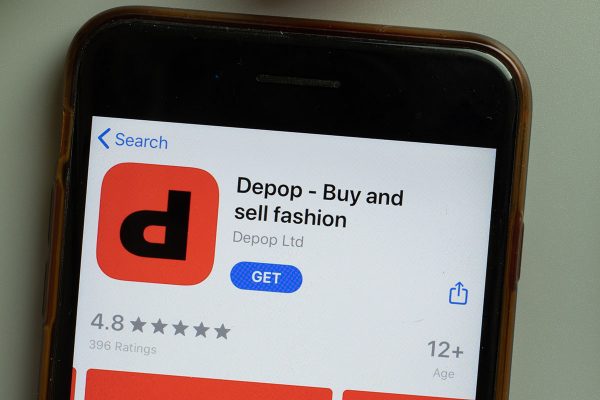 Helen Parker is the Managing Director of The Supplier Central marketplace and community. She has over 20 years experience in retail and supply chain management, with a particular interest in B2B re-selling.
Helen Parker is the Managing Director of The Supplier Central marketplace and community. She has over 20 years experience in retail and supply chain management, with a particular interest in B2B re-selling.
Today Helen takes a look at Depop and why you should care about this marketplace:
What is Depop, and why should you care?
Imagine you’re at the wedding of a family friend, and their slightly glamorous cousin in trendy sunglasses tells you about how they are working as an “influencer” – that’s Etsy. Now imagine they introduce their other teenage cousin who is a “genius on socials” and casually refers to the 90s and noughties as vintage – that’s Depop.
Depop describes itself as a “social shopping app” but is essentially an ecommerce marketplace in a very cool wolf’s clothing. It was recently acquired by Etsy for $1.6bn and is a London based business that now has 30 million customers in 150 countries since launching in 2011. More than 90% of Depop’s 30 million users are under 26 (Etsy average age is 39) and it is the 10th most visited site in the US.
It has the in-built dopamine hit that social media natives have grown up with, and doubled its revenue to $70million in 2020. Many eBay and Amazon marketplace sellers have avoided Depop, which isn’t a bad strategy since the criteria are extremely high to become a top rated seller, on top of which, the aesthetics that do well are those of creative, young, impactful fashion – which stands out because it can’t be faked or mass produced.
Depop sellers seem to not fall in to other marketplaces, and the same vice versa, so why should we care? Well I worked for a group of European Yellow Pages franchises in the noughties for the central “internet team” trying to move them online, and distinctly remember being in a an Eastern European city where a CMO screamed at us and stormed out during a very tense dinner telling me that “I don’t care what you think, Google will never work here” (spoiler – it did). I don’t think Depop is going to the Google of retail, but the tremors of the young will become the trends of the future.
So, beyond the obvious observation that a business built on social media will thrive on social media… what should the average marketplace seller take notice of the Depop story?
- Sustainability
It only takes a few minutes on Depop to see vintage and recycling is viewed as better than fast fashion. This trend is one that will have to be integrated into other marketplaces, perhaps searches start to explicitly prefer sustainable products and materials – now is the time to ask the questions of suppliers so you can put it in your product info.
- Individuality
Depop reportedly spends little money on advertising, preferring to spread through word of mouth by curating interesting products. Brands that want to be cool are opening shops on Depop. The platform can service any taste or niche, where even the classic fashion categories/descriptions on Amazon or eBay are rigid by nature, Depop specifically serves gender fluidity and diversity that would be implicitly delineated on other platforms. Considering your product range and categories could increase potential customers. Buying with a broader spectrum in mind could put you ahead of the curve.
- Bricks & Mortar will survive
Interestingly one of the keys to Depop’s strategy seems to be IRL events and attaching themselves to branded stores (of course the coolest ones!). It is an interesting phenomenon of the pandemic that whilst it was assumed older people would want to impose the office rules they have had their whole lives on the younger staff, when surveyed, younger workers predominantly wanted a hybrid approach, whilst the older generations want to “work from home every day” in larger numbers, even more surprisingly the under 25s also wanted to “work in the office every day” at a much higher rate than their older colleagues (Bloomberg). Younger people respond to social interaction, so putting that personalised note in every box, or giving a warm email response can only help your sales.
- Price still matters
Depop is seen as pricey. I asked a friend’s fashion-studying 17 year old son recently if he bought on Depop – his answer was “no, but it’s like a magazine, we look there then go to a vintage shop or charity, or eBay and see if we can get the same”. It will be hard for Depop to continue to walk the line between the cool inclusive charity shop and charging 10% commission, especially with expectant new owners, so there will be a gap in the market for a hybrid model for savvy marketplace sellers.
It probably doesn’t matter for any ecommerce business for a 2-3 year plan, but if you want to be making money and growing 5-10 years down the line, then Depop should be seen as a cultural signpost, their users will be the 30-45 year olds looking to spend money online who will have a disposable income and are used to have their niche personalised requirements served. The future trends are hard to predict, but the maxim of retail that the “customer is always right” will continue to be true, so we should look now to see what we think they will be right about.









